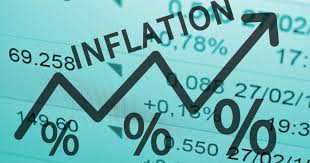Some financial analysts have urged the Federal Government to adopt innovative polices that could deepen its support for local manufacturers to enhance their output and curb rising inflation.
They said in Lagos that such policies would help to address disruption in food supplies and ensure the nation achieve food sufficiency.
Prof. Bright Eregha, Department of Economics, Pan Atlantic University, urged the federal government to strengthen local producers with macro economic policies.
“The current inflation rate, being experienced, is more of cost push and it indicates increases in the cost of raw materials for production.
“This is negating local production and relying on imported commodities with its adverse consequences to the economy,” Eregha said.
He noted that the intervention by the Central Bank of Nigeria (CBN) to fund the federal government budget deficit over time was another factor triggering the inflationary optic.
The professor also said that the incessant increasing cost of petrol was worsening by the inflation rise and urges the federal government to support the building of more private petrol chemical plants.
“This ensures its availability and reduces the volume of foreign exchange expended on its importation.
“Which has become one of the causes of rising inflation in the country in recent times,” Eregha said.
Also, Mr Okechukwu Unegbu, former President, Chartered Institute of Bankers of Nigeria (CIBN), said the federal government should do more in enhancing local producers.
“Supporting them with adequate foreign exchange to acquire machinery and production inputs is imperative to operate optimally.
“Then, they can commence more manufacturing of imported commodities locally and expand their capacity in the process,” Unegbu said.
He noted that the government could contain inflation by investing in the right environment and key infrastructure that would boost productivity.
“More investment in regular electricity and workable transportation would grow the economy.
“Over time, the exorbitant cost of commodities will begin to dip because there would be too many produced goods locally,” Unegbu said.
Also, speaking Mr Bidemi Ojelewe, Director, Agric Bee Institute, urged the government to address the disruption in food supplies to check the rising inflation.
“The interruptions in food supplies currently is caused by banditry and herders farmers crisis in many of our farming communities which my humble self is a victim.
“The federal government needs to engender peace in many of our farm settlement to guarantee food supplies and reduce spikes in inflation rate,” Ojelewe said.
He noted that the climate change challenges was another factor undermining the quest to achieve self-sufficiency in food produce.
This, Ojelewe said, often result to desertification in farming settlement or intense rainfalls washing away food produce.
Inflation rose to 21.91 per cent in February which is the highest in 18 years.
Data from the National Bureau of Statistics (NBS) revealed that this is the second consecutive month inflation is rising in the year after it fell in December 2022, after an 11-month rise.
In January, inflation rose to 21.82 per cent from the 21.34 per cent that was recorded in December 2022.
The NBS disclosed that increases in the price of bread, cereal, rent, potatoes, yam, tubers, vegetables, and meat drove inflation up in February.




